Here is my code
TwitterRestClient
import android.content.Context;
import com.loopj.android.http.*;
import cz.msebera.android.httpclient.entity.StringEntity;
public class TwitterRestClient {
private static final String BASE_URL = "https://www.example.com/api/";
private static AsyncHttpClient client = new AsyncHttpClient();
public static void get(String url, RequestParams params, AsyncHttpResponseHandler responseHandler) {
client.get(getAbsoluteUrl(url), params, responseHandler);
}
public static void post(String url, RequestParams params, AsyncHttpResponseHandler responseHandler) {
client.post(getAbsoluteUrl(url), params, responseHandler);
}
public static void post(Context ctx, String url, StringEntity entity, java.lang.String contentType, AsyncHttpResponseHandler responseHandler ){
client.post(ctx,getAbsoluteUrl(url),entity,contentType,responseHandler);
}
private static String getAbsoluteUrl(String relativeUrl) {
return BASE_URL + relativeUrl;
}
}
This the method in my LoginAcitivity
public void testPost(StringEntity entity) throws JSONException {
TwitterRestClient.post(getApplicationContext(),"api-auth/", entity,"application/json", new JsonHttpResponseHandler() {
@Override
public void onSuccess(int statusCode, cz.msebera.android.httpclient.Header[] headers, org.json.JSONArray response) {
// If the response is JSONObject instead of expected JSONArray
GlobalFunctions.ShowToast(getApplicationContext(),"test");
}
@Override
public void onFailure(int statusCode, cz.msebera.android.httpclient.Header[] headers, java.lang.Throwable throwable, org.json.JSONArray errorResponse){
GlobalFunctions.ShowToast(getApplicationContext(),"test1123");
}
@Override
public void onFailure(int statusCode, cz.msebera.android.httpclient.Header[] headers, java.lang.Throwable throwable, org.json.JSONObject errorResponse){
GlobalFunctions.ShowToast(getApplicationContext(),errorResponse.toString());
}
@Override
public void onFailure(int statusCode, cz.msebera.android.httpclient.Header[] headers, java.lang.String responseString, java.lang.Throwable throwable){
GlobalFunctions.ShowToast(getApplicationContext(),responseString);
}
});
}
This is what i call when user clicks the button
public void signIn(View v){
try {
String url = "/api-auth";
JSONObject jsonParams = new JSONObject();
jsonParams.put("username", "binsoi@gmail.com");
jsonParams.put("password", "cornedbeef");
StringEntity entity = new StringEntity(jsonParams.toString());
client.post(context, url, entity, "application/json",
responseHandler);
testPost(entity);
} catch (Exception err)
{
GlobalFunctions.ShowToast(this, err.toString());
}
}
Hope this will help you, tell me if it this doesn't work because i edited this before posting.

